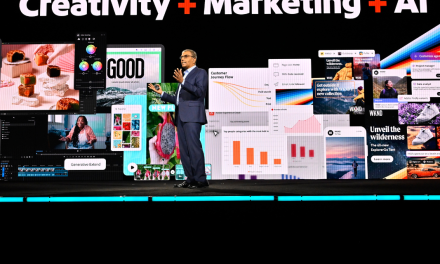The latest marketing technology trend emerging in the post-pandemic era is the use of NFTs.
Non-fungible tokens (NFTs) are digital assets that create abundant digital intellectual properties for the creator economy. Using NFTs, collectors can possess artifacts without worrying about verification and security because of the stringent blockchain-based authentication process involving unique identification codes.
Rare artifacts grow in value during a bidding process, and all creators undergo strict verification. The items aren’t interchangeable. For instance, an NFT of beautiful artwork has to have only one owner. With unique identification codes, NFT items are authentic with high value.
NFTs are changing the lives of Southeast Asian content creators, from people who struggle to make ends meet to novice artists who use NFTs to earn extra income. For instance, a Filipino now earns four times his day job salary as a clerk when he started playing an NFT-based game, Axie Infinity.
NFTs aren’t only limited to digital artwork or gaming assets. Other examples of NFTs include audio, multimedia, photography, music, video, virtual reality, online video games, and fashion.
Benefits Of NFT Technology
NFT technology transforms how APAC businesses operate, providing the following benefits:
- Boost Brand Awareness: NFTs offer a new user experience, increasing brand awareness. For instance, a mobile advertising campaign can use NFTs that you can distribute on different digital platforms. Hence, businesses can use NFT technology to create and offer vouchers and personalized gifts to customers.
- Establish Purpose-Driven Branding: Businesses can donate a portion of NFTs proceeds to charity, instilling a valuable brand asset to the community. This strategy attracts people, enticing them to avail the products and services of purpose-driven brands, specifically Gen Z and tech-savvy Millennial consumers.
- Social Media Marketing: NFTs revolutionize social media marketing. Brands can use analytics to track NFT data on different social media platforms.
- New Revenue Stream Opportunities: Using NFTs, brands can monetize digital ads several times, making them collectible assets. Companies can use NFTs to create a buzz in events and product launches using early access tokens. Hence, NFTs provide new revenue stream opportunities when selling digital goods and even complement physical offers.
- Data Collection And Rewards: NFTs allow businesses to gather creative data and reward co-creators for their contributions, such as owning shares. Co-creators, such as singers, composers, musicians, and painters, can be great marketing partners since they’ll also benefit from the NFTs.
- Cut Middlemen: Many content creators monetize their creative work on Netflix, Facebook, and YouTube. However, these platforms are middlemen, earning a huge percentage and taking co-ownership of the content. But with NFT technology, creators can take advantage of blockchain-based smart contracts, allowing creators to take full ownership of their digital assets and make profits from their creations fully and directly.
APAC Legal Implications
Latham & Watkins lawyers, in a webcast, discuss NFTs and legal implications. They explain how NFTs work and their regulatory, securities, and intellectual property legal implications. In addition, the lawyers also discuss the global considerations of using NFTs across the United States, United Kingdom, and the Asia Pacific region.
According to the lawyers, a simple non-fungible token doesn’t validate that the creator has underlying rights to link the NFT to a particular art or creative work. Therefore, NFT platforms should still perform a manual verification process to verify the seller’s intellectual property rights to avoid legal issues.
Conclusion
NFT technology enables content creators to link non-fungible tokens to their creative work to protect their ownership and intellectual property rights. This marketing technology trend allows brands to use NFTs to run multiple ad campaigns using their content or by monetizing another content creator’s content. In addition, individual content creators and businesses can mark and authenticate their content or creative works to protect themselves legally, in terms of IP and copyrights, by embracing NFT technology.



















